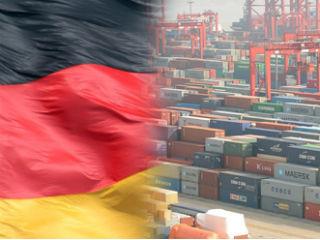Washington’s decision to impose more sanctions on Moscow has been criticised by EU member states, particularly Germany

Germany’s fears that the sanctions could affect European companies involved with Russia have barely registered in the US media’s coverage. Neither has the prospect of countermeasures by member state governments and the European Commission.
by
Albrecht Meier,
Antje Sirleschtov and
Christoph von Marschall
This week, Vladimir Putin reacted to US sanctions by announcing that 755 American diplomats and embassy staff will have to leave Russia.
The sanctions, which are targeted, among others, at Russian gas giant Gazprom, could give the US an advantage in providing Europe’s energy supply and are a tit-for-tat response to Russia’s alleged interference in last year’s presidential election.
Germany’s government, particularly its social democratic members, has been critical of the decision. Minister of Economic Affairs Brigitte Zypries (SPD) even described the sanctions as a violation of international law.
That is because the US penalties could also affect German companies that are involved in the construction of Russian energy projects like the Nord Stream 2 pipeline.
The sanctions are considered to be part of a domestic political struggle between President Donald Trump and Congress. The latter wants to tie Trump’s hands in terms of Russia policy.
Chief among the motivations for the sanctions are the alleged interference in the election and Russia’s involvement in the Ukraine crisis. Congress wants to make sure the president cannot alleviate or abolish the sanctions against Moscow.
Germany’s fears that the sanctions could affect European companies involved with Russia have barely registered in the US media’s coverage. Neither has the prospect of countermeasures by member state governments and the European Commission.
Only readers of specialised news outlets like Bloomberg have any idea that Washington’s machinations could exert a significant toll on international relations.
German Foreign Minister Sigmar Gabriel’s (SPD) warning that the US wants to disrupt Russia’s gas exports to Europe in order to take advantage of the market have not been given much attention on the other side of the Atlantic.
The US has not yet imposed further penalties after President Vladimir Putin decided to expel its 755 diplomatic staff. Moscow chose this retaliatory route instead of economic sanctions because Russia is still heavily dependent on Western investment and know-how.
European companies are concerned about the sanctions because they include “extraterritorial effects”. This means that if punitive measures are imposed on Nord Stream 2, then every material supplier, service provider and construction company involved will be sanctioned.
Sigmar Gabriel has already insisted that Berlin will not accept any penalties that are levied against German companies.
Angela Merkel’s CDU foreign policy chief, Norbert Röttigen, claimed that Gabriel and Zypries’ harsh words for the US sanctions are politically motivated ahead of September’s federal elections. He added that the dispute needs “transatlantic cooperation and dialogue”, not threats.
Röttigen also differs with the SPD on Nord Stream 2, which he has labelled as “incompatible with EU energy targets”. The Social Democrats have also been accused of being influenced by their former leader, ex-Chancellor Gerhard Schröder, who sits on the board of the project.
The planned pipeline draws together energy suppliers in Germany, Austria, France, the United Kingdom and the Netherlands. French firm Engie are invested in the project, along with its counterparts in other member states, to the tune of €9.5bn.
Engie has warned that it will withdraw from the project if the penalties are indeed applied but is currently pursuing a wait-and-see attitude.
The European Commission is also biding its time. A spokesperson for the executive told Der Tagesspiegel that the institution is pleased to note that any sanctions will be discussed with the US’ allies before they are applied.
Brussels was also happy to note that US lawmakers amended the original version of the sanctioning act so that penalties will only apply if Russia holds at least a 33% share in projects.
*Translation by EurActiv.com first published in Der Tagesspiegel 

